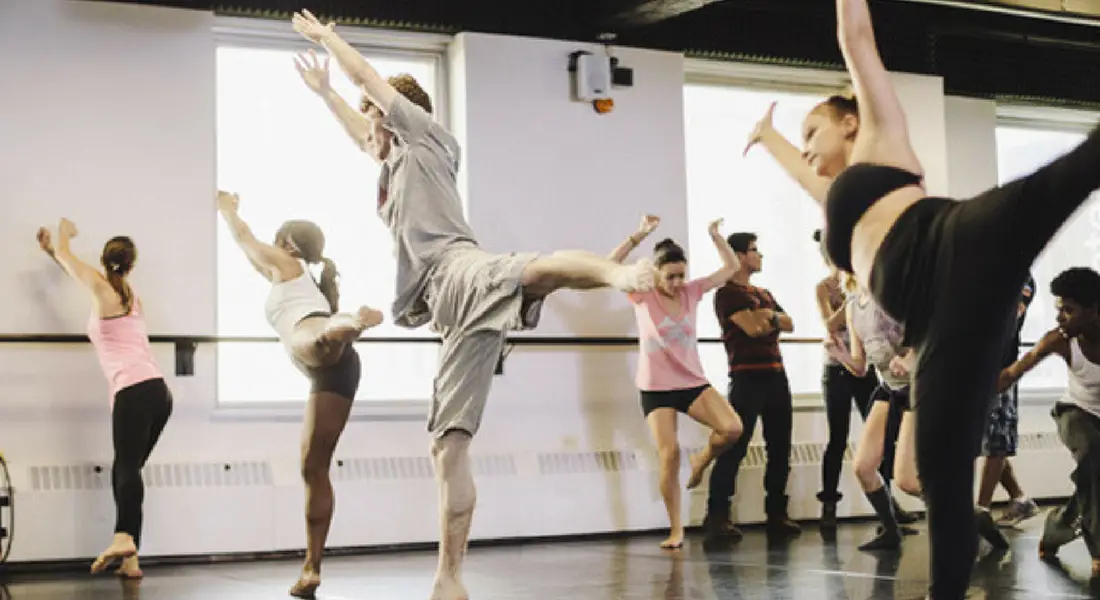An alternative to talk therapy using movement to heal mind, body, and soul
We are familiar with the health benefits of dance. It can reduce stress, improve flexibility, coordination, and balance. What not many people know is that there is a niche form of psychotherapy that uses movement, the core component of dance, to heal and integrate the mind, body, and soul. It’s not new and it’s not a trend.
Interested? Here are the top 5 answers to questions you need to know about dance/movement therapy.
What is dance/movement therapy?
According to the American Dance Therapy Association, “dance/movement therapy is the psychotherapeutic use of movement to promote emotional, social, cognitive and physical integration of the individual.” It is an expressive therapy that uses movement and verbal processing to observe, assess, and intervene in a patient’s overall health. It is facilitated by a master’s level clinician with a specific degree in dance/movement therapy. It has been around since the 1950’s and in the United States, is governed by the American Dance Therapy Association which was formed in 1966.
Does it require any experience or skill in dance?
You do not have to be a dancer or have any dance skill to participate or benefit from dance/movement therapy. Dance/movement therapy uses body language and non verbal communication, an innate primitive quality inherent to every living thing, to validate and support an individual’s existence and to facilitate change and growth. Martha Graham believed, “Movement never lies. It is a barometer telling the state of the soul’s weather to all who can read it.” The only requirements for dance/movement therapy are a heartbeat, breath, and a willingness to explore the self.
What does a session look like?
Dance/movement therapy sessions can look much like a talk therapy session and vary greatly depending on the individual. It is often up to the patient how large the movement is or how indulgent it may be. It can incorporate breathing exercises, meditation, mindfulness, stretching, and yes, dance, in addition to verbal processing. It can be done individually, as a couple, or even in a group. Sessions take place in hospitals, nursing homes, day centers, schools, studios, homes, and offices around the world. It is a holistic body-based therapy that can be done standing up, sitting down, or even from a person’s bedside.
What are the benefits of dance/movement therapy?
Dance/movement therapy can benefit people of all ages, abilities, and life circumstances because it supports the individual on a body level where they are in that specific moment in time. Dance therapy has a broad range of health benefits clinically effective at improving body image, self-esteem, focus, attention, communication skills, and self-awareness. It has been shown to reduce stress, fears and anxieties, as well as lessen feelings of isolation, body tension, chronic pain, and depression. In addition it can enhance the functioning of the body’s circulatory and respiratory systems. It has been used with individuals dealing with, but not limited to, Alzheimer’s, Autism, ADHD, cancer, chronic pain, depression, dementia, mental illness, mood and anxiety disorders, movement disorders, sensory processing disorders, trauma, and even violence prevention.
Am I a candidate for dance/movement therapy?
Dance/movement therapy, although it can benefit anyone, is best suited for individuals who have difficulty expressing themselves through traditional verbal communication. Individuals often plateau in traditional talk therapy, and dance/movement therapy is a fantastic way to deepen the process and enhance personal growth and change. It allows an individual to express what is often too deep for words.
For more information on dance/movement therapy, visit the American Dance Therapy Association.
Erica Hornthal

Erica Hornthal, MA, LCPC, BC-DMT, is a licensed clinical counselor and board-certified dance/movement therapist. She is the founder and CEO of Chicago Dance Therapy, which is a group psychotherapy practice dedicated to providing holistic counseling for individuals, couples, families and groups. Erica received her MA in Dance/Movement Therapy and Counseling from Columbia College Chicago. She is passionate about helping individuals of all ages increase their quality of life by emphasizing the mind-body connection to enable growth and healing. As a movement therapist, Erica uses body movement every day with her clients to provide the means of assessment and the mode of intervention in therapy. Her work has been highlighted in Dr. Oz The Good Life Magazine, Social Work Magazine, Natural Awakenings, Reader’s Digest, PARADE Magazine, Fox, WGN, and WCIU.
Erica Hornthal, MA, LCPC, BC-DMT
Chicago Dance Therapy
(847) 848-0697











 Subscribe to Ask Dr. Nandi YouTube Channel
Subscribe to Ask Dr. Nandi YouTube Channel









